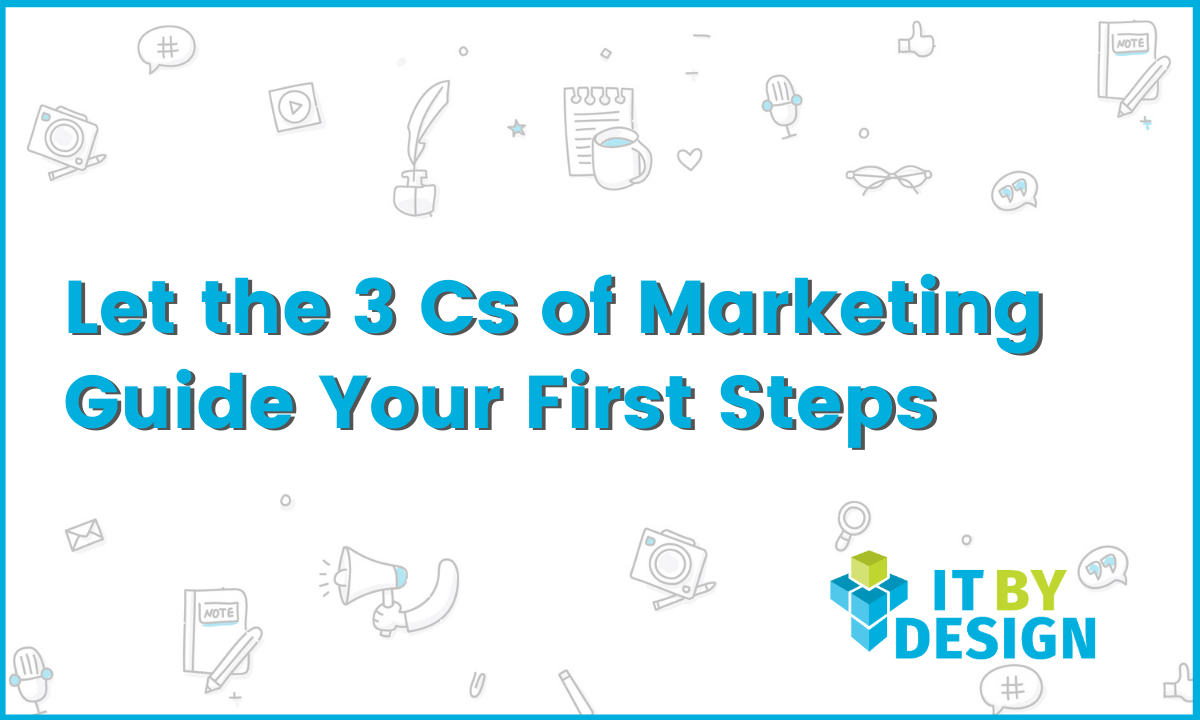Can you keep a secret? Even the most seasoned business owners can be overwhelmed when it’s time to launch a marketing plan. There are so many questions and possibilities, even marketing pros need to work through the process step by step. The best way to prepare—for a net new marketing plan or even a specific marketing campaign—is to consider the 3 Cs before you take one step forward. Investing time to develop your plan is essential—a misstep can have a grave impact on your brand reputation.
Step 1: Clarity
This step is all about the who, what, when, where, and why. Very rarely does a business market to existing customers and potential prospects in the same way—although the message may be similar. You will need to think about who is in your audience—and what you want to share with each of them. Some questions to consider:
- If you are focused on prospects, then think about who you want to talk to—the CEO, the IT manager, etc.
- What does your ideal customer profile look like and what platform allows you to best reach that demographic.
- Do you have a vertical you’re trying to break into; if yes, where can you find those decision-makers?
Starting with your audiences will help you then determine what messages you need to think through and where you find those targets. Don’t forget to think about timing—are you launching a yearlong push or a short, intense promo campaign? That goes hand in hand with the question of why? What’s the purpose of this effort? Once you’ve answered these questions, you need to think about your capabilities for execution.
Step 2: Commitment
It’s easy for people to say, “just hire someone.” But not all MSPs have a marketing budget large enough to invest in a full-time hire or an outside agency. If you are thinking about marketing, be realistic about what you can do. Dabbling in marketing without a full commitment to your strategy can cost you—in terms of both damaged reputation and wasted investment.
Think about what you want to create in terms of content—are you a great writer or are you more engaging on video? Do you have a team member who makes social media sing? You can certainly tackle all the types of content—blogs, videos, social, podcasts, webinars, white papers—but do you actually have the talent and bandwidth to do all that? It’s key to be honest with yourself about what you can commit to producing because you need to deliver that content regularly. Consistency builds trust.
Don’t confuse consistency with volume. If you are a small business and you are tackling content marketing for the first time, you don’t need to write a daily blog. Perhaps you can handle once a week or even twice a month. That is fine as long as it is quality content that delivers value to your audience—and you are consistent.
Once you’ve laid out the what and the when, you need to hold yourself accountable: Announce to your audience that they can start reading your blog or listening to your podcast on the cadence you’ve committed to. That helps, believe me.
Step 3: Creativity
Now that you’ve tackled the functional questions, let’s talk about the fun part. Creativity has to play a role in your content marketing planning. This is where you consider the “personality” of your business.
Think about your corporate tone of voice—is your team informal? funny? formal? Your brand personality should shine through with the same consistency as your brand colors or logo. And it must be genuine. Don’t be the not-funny guy trying to tell a joke. We all know how that goes.
You may also have more than one “voice” if you have shared leadership. For example, the CEO may be relaxed and outgoing, but your COO may be much more reserved and thoughtful. Be sure to be consistent with your brand personality but still allow for creative delivery. Think outside the box—how can you engage and inform customers and prospects while also leaving them with a clear, genuine impression of your company’s character.
Regardless of the size of your business or the goal of your content marketing campaign, you want to take the time to think through all the elements of a content marketing plan before you jump in. You have all the knowledge you need to deliver value through your content, but you want to be thoughtful.
Try pulling your team together for a planning session—debate the questions above and see what new questions arise. The conversation will be worth the time, trust me. You don’t launch a new product or a new business without a well-considered strategy and buy-in from your team—and you shouldn’t launch a marketing campaign without that either.
If you need additional help, check out our marketing track on Build IT U. There are free resources and deeper dives available in the paid memberships.







